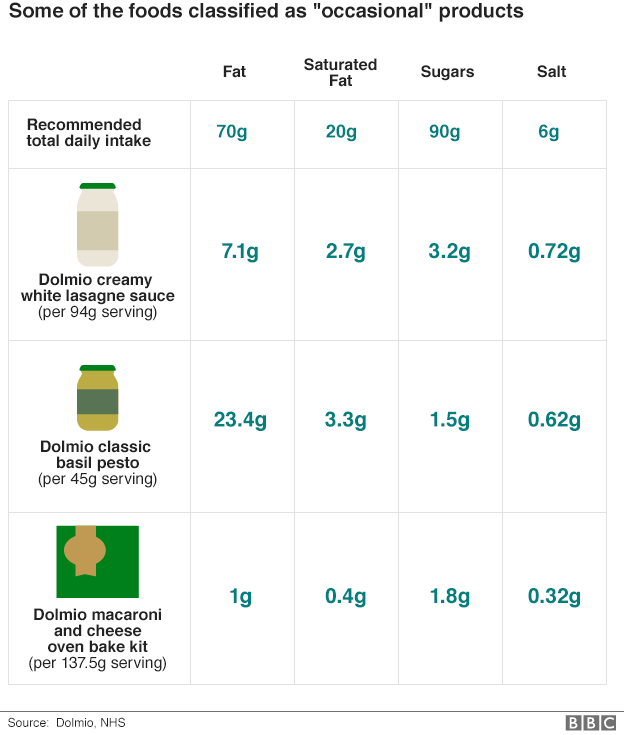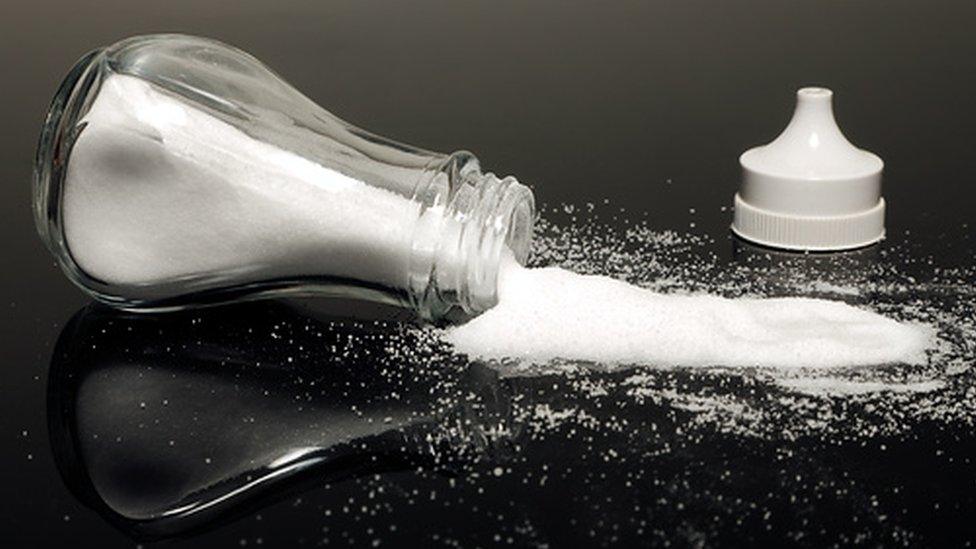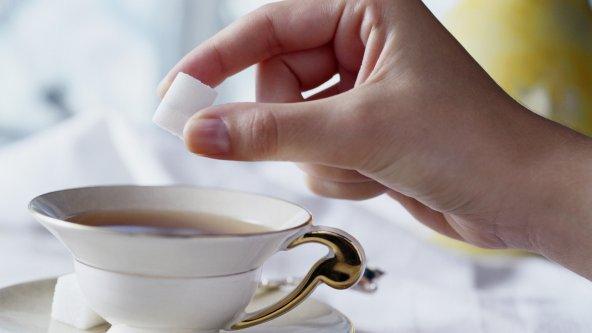Dolmio and Uncle Ben's firm Mars advises limit on products
- Published
- comments

Dolmio's carbonara, along with lasagne sauces, pesto, and macaroni oven kits, are all on the list
The company behind Dolmio and Uncle Ben's sauces says some products should only be consumed once a week due to high salt, sugar or fat content.
Mars Food said it would distinguish between "everyday" and "occasional" items on packs and website.
The company said some foods were higher in salt, sugar or fat to maintain the "authentic" taste of products.
The National Obesity Forum described the move as "hugely unusual" but "very imaginative".
The advice is part of Mars's Health and Wellbeing Ambition to "create and promote healthier food choices".
These include Dolmio lasagne sauces, pesto, and carbonara and macaroni oven kits, and Uncle Ben's oriental sauces.


Mars said its website would be updated over the next few months with the list of products to be eaten not more than once a week, and "everyday" ones.
A spokeswoman for Mars said that the company considered all of the ingredients that would go into making a complete meal using the product, rather than just for example the sauce itself, when deciding which products were to be classed as being for "occasional" or "everyday" consumption.
Adults are recommended to have 70g fat a day, 20g saturated fat, 90g sugar and 6g salt., external per day.

Tam Fry, of the National Obesity Forum, a charity that raises awareness about the condition, said: "Mars signposted their direction of travel towards healthier products several years ago and are now putting their money where their mouth is."
Ben Reynolds, deputy co-ordinator of food and farming alliance Sustain, said he believed companies were "trying to scramble to show they can be good and do the right thing" before the government releases its childhood obesity strategy later this year.
"The government have shown they are willing to bare their teeth and they're not going to stand for a voluntary approach," he said.
The Victoria Derbyshire programme looks at products affected and hears from healthy eating campaigner Jenny Rosborough from Action on Sugar
Speaking to the BBC News channel, he welcomed the move and called for other businesses to follow suit.
He added: "The truth of it is that anything that comes out of a packet, comes out of a jar, that has been processed, is not going to be particularly healthy for you.
"Whether you're making a quick pasta meal or a Sunday roast, the cheapest and healthiest way is from fresh ingredients."
Nutritionist Jenny Rosborough from Action on Sugar told the BBC's Victoria Derbyshire programme: "It's great that they are pushing forward this responsible labelling and raising awareness.
"But the challenge we have with it is that only the health conscious will look at the labels in the first place, therefore it's not going to hit the people who need it the most."

Analysis

By Helen Briggs, BBC News
Whose responsibility is it to make sure we eat healthy food and shouldn't the sugar tax apply to all foods, not just soft drinks?
These are some of the questions being asked following the announcement by Mars that some of its products - such as pasta sauces and pesto - should be eaten only occasionally.
A tax on sugary soft drinks will take effect in two years' time - giving food manufacturers a nudge towards cutting sugar.
But in the food sector the government relies on industry to self-regulate. According to campaign group Campaign for Action on Salt reformulation is key, but while it remains voluntary many companies are failing to do this.
One of the UK's leading nutrition experts, Prof Tom Sanders, says the Mars move sounds like "Martian spin" as there's no need to add large amounts of salt to cook-in sauces - and these foods should be everyday foods not treats.

Mars said the products the advice applies to are to be reformulated over the next five years to cut salt, sugar or fat.
Nutritionist Laura De La Harpe told BBC Radio 5 live it should not be difficult to reduce the sugar content.
"What would concern me would be if they start adding sweeteners, artificial sweeteners to replace the sugar," she said.

Mars said its "nutrition criteria" has been developed based on recommendations from leading public health authorities such as the World Health Organization.
Fiona Dawson, a global president of Mars, said: "We're holding ourselves to a much higher standard... which will lead us to further reducing sodium across our global product portfolio by an average of 20% by 2021 and added sugar in a limited number of sauces and light meals by 2018.
"While we have some work to do, 70% of our tomato-based Dolmio jar products already meet this 'everyday' standard.
"Our guidance to consumers on everyday and occasional meals is a key element of our ambition, as 95% of our product portfolio will fall into the 'everyday' category and 5% of our product portfolio will receive an 'occasional' label in the coming years, much of which will still go through some amount of reformulation to be made healthier."
The move comes after Chancellor George Osborne announced a sugar tax, with the aim of tackling childhood obesity, in his recent Budget.
- Published22 March 2016

- Published15 January 2016

- Published17 July 2015
